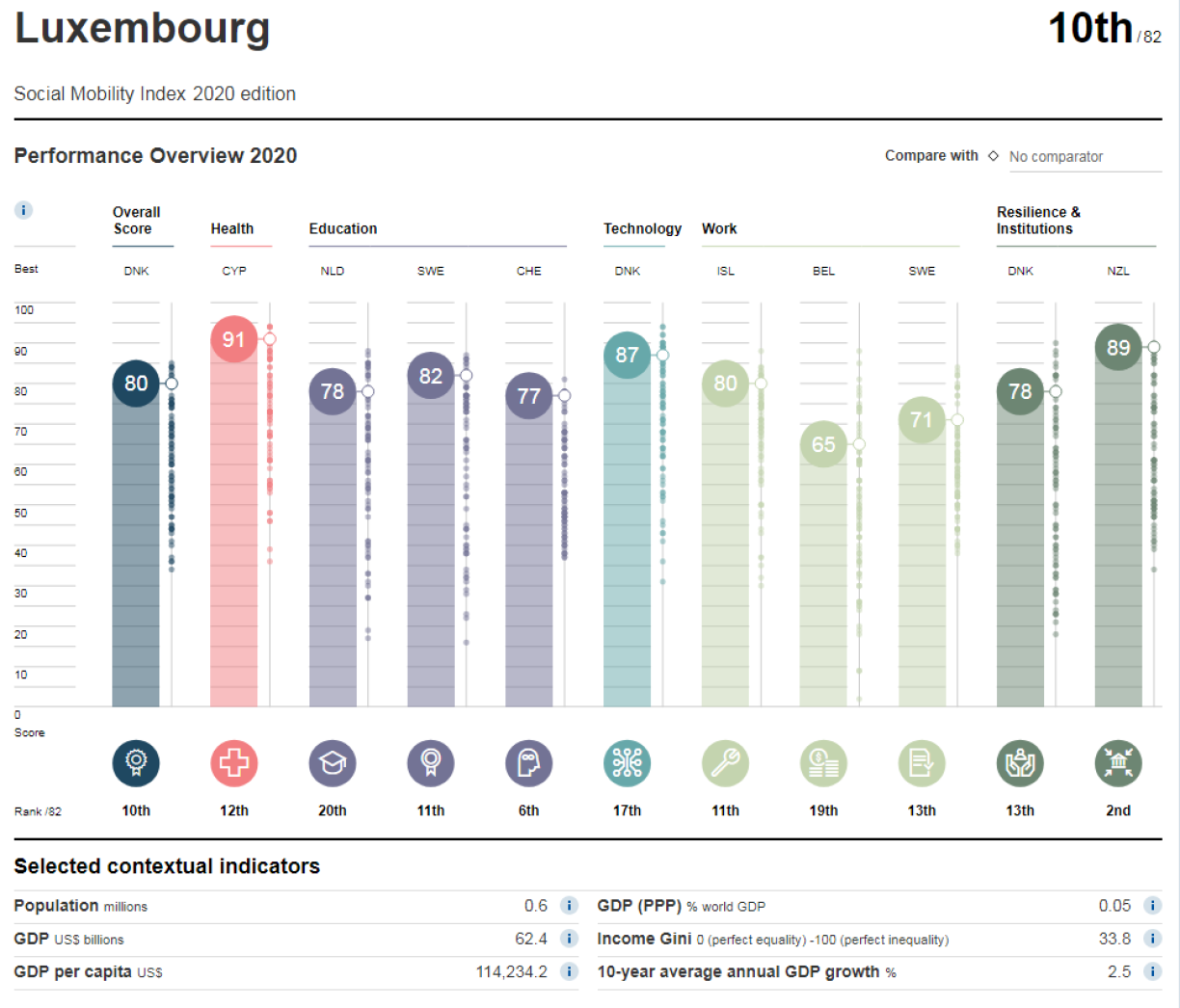
Social mobility is essentially the change in ones personal circumstances as compared to those of one’s parents - either ‘upward’ or ‘downward’ - or the ability of a child to achieve a better quality of life than their parents. It also encompasses the impact of a person’s socio-economic background on their outcomes in life.
As such, a higher ranking theoretically means that it is relatively easier to achieve a higher quality of life than that into which you were born, while a lower ranking means it is relatively more difficult.
The report assigns a score of 0-100 based on a series of 10 pillars - such as health, education, technology, work, resilience & institutions - each with several sub-indicators.
Factors that are taken into account range from the prevalence of malnourishment among children, to access to education, digital skills among active population, access to electricity and the internet, unemployment, labour income share, and to workers’ rights.
The countries that came out on top are (name - score):

Our other two neighbours (beyond Belgium, who beat us by .3 and one position in the rankings), also fared quite well. Germany came in 11th with a score of 78.8, and France one position behind them with a score of 76.7.
Looking at the 10 individual pillars that constitute the broad outline of the report, Luxembourg’s rank for each (in descending order) is:

Global Social Mobility Index 2020: why economies benefit from fixing inequality